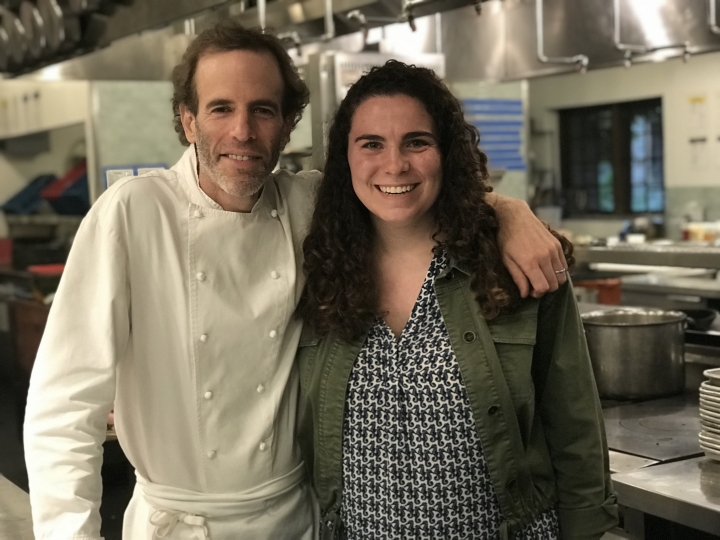Lia Mondavi, A.B. ‘19
Lia Mondavi was born into food, wine and fine dining. Part of the internationally renowned Mondavi wine family, her great grandparents Cesare and Rosa purchased the Charles Krug winery in Napa Valley, California, in 1943. Lia’s grandfather Peter Sr. and father Peter Jr., along with her uncle Marc, have all worked to steward the family-owned business.
At Harvard, Mondavi, A.B. '19, was able to explore her passion for the world in which she grew up.
She spent a summer as an innovation consultant at Domori Chocolate in Italy, was a food literacy fellow for Harvard University Dining Services, and worked as a barista and operations manager for Cabot Café on campus.
“I did it to make friends and be part of the community, but it ended up being this amazing experience where I got to see a little glimpse of what it was like to run a business, and how you have to make certain decisions and be sure you’re making ends meet,” Mondavi said. “That showed me that trying to combine business and food was something I was really interested in, and it showed me a glimpse of what it would be like.”
As an applied math concentrator at the Harvard John A. Paulson School of Engineering and Applied Sciences (SEAS), Mondavi put her education to use promoting sustainability in the restaurant and food distribution industries. The summer after her junior year, she interned at Blue Hill at Stone Barns, a Michelin-rated restaurant with a focus on local produce.
“The approach to food was very different from any restaurant I’d ever experienced, in that there was a level of interrogation of our food system, sustainability, and the direction we had to go to feed the world going forward,” she said.
Mondavi used Blue Hill as a model for analyzing the impact of sustainability-driven restaurants in her senior thesis. Since graduating, Mondavi has worked for two food distribution companies, Pasta Evangelists and allplants, both based in London. She’s currently a business intelligence analyst for allplants, a vegan meal delivery service.
Lia Mondavi, A.B. ‘19, with chef Dan Barber during a summer internship at Blue Hill at Stone Barns restaurant.
“I was really drawn to their mission,” she said “We need more people buying in and realizing this is an issue that needs addressing. Everyone on the planet going vegan tomorrow isn’t reasonable or sustainable. Some people come from cultures where eating meat or dairy is inherently part of their way of life. But anywhere where we can reduce consumption of meat and get people to buy into the idea that meat doesn’t make a meal is really important to shifting how we consume food and its long-term sustainability.”
Business intelligence analysis taps directly into Mondavi’s applied math education. Her work covers everything from the effectiveness of marketing campaigns to the internal structure of how data is interpreted and distributed within the company.
“There’s a lot of data when it comes to sustainability,” she said. “Being able to understand where those facts come from, interrogate and challenge them a bit, is something that applied math really set me up to do well. The style of thinking that I learned at Harvard really prepares you for not just accepting what people tell you at face value.”
Harvard initially appealed to Mondavi because it was on the East Coast, which seemed like it would offer a much different living experience than California. Visits to Cambridge and conversations with enthusiastic students further cemented her desire to come here. Once she did, the housing system provided her an easy way to develop a tight-knit group of friends.
Mondavi arrived on campus already planning to study mathematics. Through her experiences here, she learned how to channel her education into a passion that’s driven her career choices since graduating.
“I ended up really liking the approach to applied mathematics, how broad it was and the ability to apply it to another field,” Mondavi said. “When I started at Harvard, I didn’t know exactly what I wanted to do. Applied math allowed me to stay really broad and feel like regardless of where I ended up, it would be applicable and help pursue whatever career choices I wanted.”
Press Contact
Matt Goisman | mgoisman@g.harvard.edu
